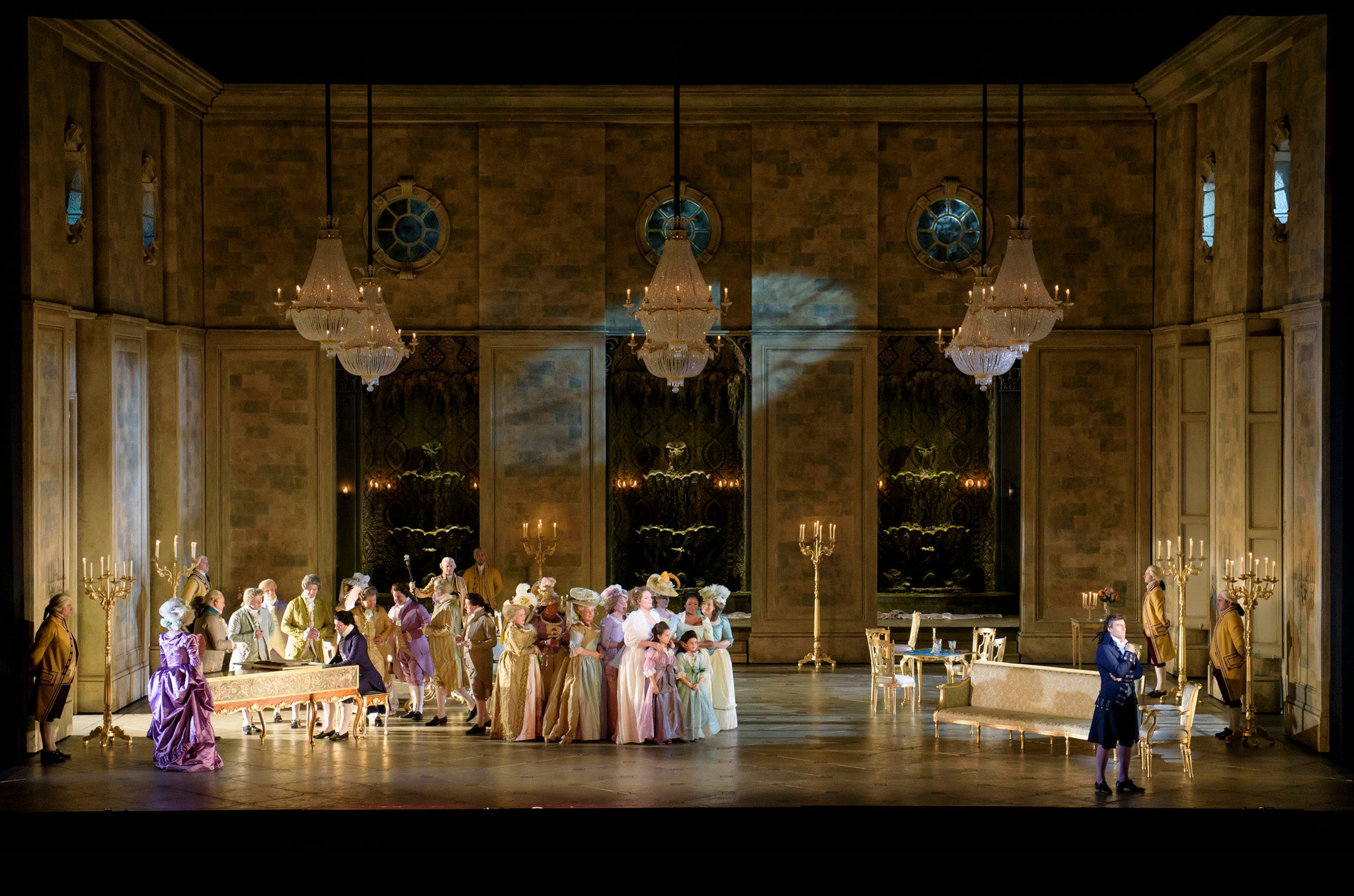Andrea Chenier, Royal Opera House - review: An exquisitely realised production
Jonas Kaufmann brings down the house with the sheer beauty of his singing

André Chénier was a poet-satirist who fell foul of Robespierre and was guillotined in 1794; the formal beauty and moral fury of the poem he penned on the eve of his execution makes one of the most chilling death-row utterances ever. An Italian translation of that poem’s first line – comparing the sunset of his life with the end of a fine spring day - provides the aria which Umberto Giordano’s Andrea Chénier sings as he waits to mount the scaffold.
But there the similarities end. The hero of Andrea Chénier dies for a reason more in tune with late nineteenth-century audience requirements – love. This Chénier starts out as a radical, but his principles are no match for the charms of Maddalena, the beautiful young aristocrat who sends him fan letters signed ‘Hope’, and whose mortal danger moves him to throw up everything to save her. It’s a big part, requiring a big voice and presence, and for their first production in thirty years of this opera – Jose Carreras and Placido Domingo took turns to sing it last time – Covent Garden have cast Jonas Kaufmann.
Giordano was a contemporary of Puccini and shared a librettist with him, Luigi Illica, and there are echoes of Tosca throughout Andrea Chénier, notably of Cavaradossi’s farewell to life in ‘E lucevan le stelle’. But although there are overtones of Scarpia in the character of Gerard – a disaffected servant who also loves Maddalena, and who becomes a revolutionary – this character, unlike the evil Scarpia, is an all-round good guy who tries to save Chenier’s life despite the fact that Chenier has wounded him in a duel. Giordano wants to tell a simple, uplifting tale.
He also wants, by inserting popular songs, to evoke the atmosphere of the French Revolution, and in this he is faithfully abetted by David McVicar’s scrupulously researched and exquisitely realised production. The palace of the gentry and the pullulating streets are energetically brought to life, if in benign soft focus; the joyous libertinage of the exotically-dressed Merveilleuses and Incroyables is McVicar’s way of reminding us that for some people the Revolution was actually lots of fun. The courtroom scene, however, is queasily believable.
And the casting of the supporting characters works well, with Elena Zilio’s Madelon and Carlo Bosi’s Incroyable adding colour, and Denyce Graves’s forceful Bersi and Zeljko Lucic’s powerful Gerard laying the groundwork for the central encounter. Eva-Maria Westbroek’s firmly-sung Maddalena may possess a too-mature stateliness, but when Kaufmann launches into his opening aria it’s as though the sun has come out: with his convincingly heroic presence, and the sheer beauty of his singing, he simply brings the house down.
And so he does when he sings his dream of love, when he wrestles with his soul, and when he takes his leave of life: each aria is perfection incarnate. With Antonio Pappano bringing out the drama inherent in every bar of Giordano’s intricate score, there’s nothing schmaltzy about the duets between this pair of lovers, even if the emotions are pure Forties Hollywood. So as they walk to the waiting tumbril we get an unashamedly feel-good ending.
Join our commenting forum
Join thought-provoking conversations, follow other Independent readers and see their replies
0Comments